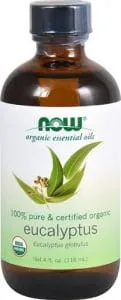What Essentials Oils Are Good For Snoring?

The use of essential oils as alternative treatment remedies has continued to gain popularity over the years. The phenomenon is primarily attributed to the traditional uses of the herbs that make the oils.
Essential oils are derived from herbal shrubs, trees and spices through steam distillation. However, there are alternative methods that can be used to generate essential oils. Most of the herbs that produce essential oils can be used to treat a wide range of health conditions.
They are linked to antimicrobial, antifungal, digestive, tonic, antispasmodic, astringent, carminative, and antiseptic, stimulant, expectorant, antioxidant, anti-rheumatic, analgesic, sedative, decongestant, vermifuge, and insecticide properties among others.
These properties provide the basis for successful treatment of health conditions particularly the ones that result from allergic reactions. For example, allergies that cause inflammation can be treated with an essential oil that is rich in anti-inflammatory properties.
How About Using Essential Oils for Snoring?
[caption id=“attachment_13729” align=“aligncenter” width=“300”] Couple Asleep In Bed With Man Snoring[/caption]
Couple Asleep In Bed With Man Snoring[/caption]
Vast research shows that snoring is among the health conditions that can be completely cured with essential oils. Although it is not usually perceived as a life-threatening complication, snoring has a bevy of social repercussions, which can be quite serious are quite serious.
Depending on the level of understanding of a partner, it can easily contribute to marital disharmony and eventual separation. It is also a source of embarrassment that leads to low self-esteem and sometimes stress and depression.
When used independently or in conjunction with other products, essential oils reduce snoring by unblocking nasal passages. In fact, there are snoring nasal sprays that are based on essential oil formulas. In the section below, we provide a detailed analysis of the best essential oils for snoring.
What Essential Oils Are for Snoring
1. Eucalyptus Oil
 Eucalyptus essential oil leaves the nasal passage squeaky clean by eliminating sinus congestion and allergies.
Eucalyptus essential oil leaves the nasal passage squeaky clean by eliminating sinus congestion and allergies.
Since the oil is packed with expectorant, anti-inflammatory, anti-microbial, antiviral and antifungal properties it is an excellent alternative treatment for a wide range of respiratory infections. Once the oil decongests the nasal passage, it allows air to pass through conveniently.
Eucalyptus oil is generally considered safe for direct application on the skin. A few drops should be applied around the nose and chest areas before bed consistently until the snoring problem is completely gone.
However, if the problem persists, it is advisable to discontinue and seek medical help. Individuals with sensitive skin should use it with a carrier oil.
Steam sink and diffusion are alternative treatment approaches that can be used with eucalyptus oil for this purpose. Other health benefits that can be derived from this remedy include; mental relaxation, wound healing, and fever and flu treatment.
[su_divider style=“double” divider_color=“#f3a023”]
2. Peppermint oil for snoring
Peppermint essential oil rewards snorers with amazing benefits. Its decongestant, anti-inflammatory, expectorant, and antibacterial properties provide relief for respiratory conditions such as sinus congestion, bronchitis, irritated throats, and asthma.
Peppermint oil is also good for coughs and colds.
The methods that are commonly used to administer peppermint oil include; diffusion, topical application, steam sink and gargle.
The peppermint essential oil is very concentrated and should be diluted with a carrier oil before topical application (It is important to consult a health practitioner if you are nursing or pregnant because it can lead to an unexpected reaction).
The mixture should be massaged on the nostrils and the chest area. When using steam sink and diffusion methods, the oil can be mixed with oils such as eucalyptus and lavender. Improved blood circulation, stress, headache reduction, improved body energy and fever reduction are the other benefits that can be derived from this treatment remedy.
[su_divider style=“double” divider_color=“#f3a023”]
3. Lavender Oil
Lavender oil is the crème de la crème of essential oils. Besides the fact that it is the safest undiluted essential oil, its health benefits go above and beyond.
Lavender oil is associated with anti-inflammatory, antibacterial, antifungal and antibacterial properties that are essential for successful treatment of respiratory problems such as sinus congestion, bronchitis, asthma, tonsillitis, and cough.
For effective snoring treatment, the lavender essential oil should be massaged directly around the nose area and on the chest. Alternatively, inhaled lavender vapor can help solve the snoring problem. Both topical application and inhalation remedies are also used to treat headache, stress and anxiety, back pain, and poor blood circulation effectively. Lavender oil is one of the best essential oils for treating snoring in children.
[su_divider style=“double” divider_color=“#f3a023”]
4. Thyme oil
Thyme essential oil is an excellent choice for snoring treatment in both adults and children. The chemical composition of thyme oil consists of bactericidal, expectorant, and stimulant properties that help in providing relief for the signs and symptoms of sinus congestion.
Apart from decongesting the nasal passage, it destroys the bacteria that cause infections in the respiratory system.
Thyme oil should be diluted with a carrier oil before topical application because it can easily cause irritation. The mixture should be massaged gently on the feet before bed. Inhaling the aroma of thyme oil also clears the nasal cavity. It should be diffused alone or with other oils that relief snoring an hour before retiring in bed.
Thyme oil should not be used in areas that have body openings such as the nose and ears. Furthermore, pregnant and nursing women should consult a physician before use.
[su_divider style=“double” divider_color=“#f3a023”]
5. Tea Tree Oil
Tea tree essential oil is great for snoring treatment because it is rich in stimulant, expectorant, antibacterial antiviral, and antimicrobial properties. Antibacterial, antimicrobial, and antiviral components are responsible for destroying the agents that cause respiratory infections.
Some of the respiratory conditions that can be cured with tea tree oil include coughs, sinus congestion and bronchitis. The oil should be massaged gently on the chest area before retiring to bed (It is another essential oil that can be used without a carrier oil).
It can also be inhaled by diffusing it together with other essential oils or adding a few drops on the pillow cover.
[su_divider style=“double” divider_color=“#f3a023”]
6. Marjoram Oil
Sweet marjoram essential oil is a powerful remedy for snoring. The ability is linked to its expectorant, antiviral, and antibacterial properties that provide significant support to the respiratory and immune systems.
The antiviral and antibacterial properties protect the respiratory system from the agents that cause infections whereas the expectorant property is responsible for eliminating mucus, congestion and phlegm deposited in the nasal passage and throat.
It also treats viral infections in the lungs and bronchi. There are several approaches for treating snoring with marjoram oil. For topical application, the oil should be mixed with a carrier oil and massaged around the nose area and on the chest before bed. Inhaling the aroma of marjoram oil also works effectively.
This can be achieved through sink steaming or diffusion. Sink steaming should take about 5 to 10 minutes. On the other hand, marjoram should be diffused in the air alone or with other oils for about three hours. Marjoram oil can also be mixed with other essential oils and a carrier oil (olive oil) to make an anti-snoring spray.
[su_divider style=“double” divider_color=“#f3a023”]
7. Lemon oil
Lemon, the fruit that is used to produce lemon essential oil is widely used to treat respiratory problems. The peels of the fruit transfer their medicinal properties to the oil making it an ideal treatment for a variety of health complications.
Stimulant, anti-infection, and antifungal properties of lemon oil provide relief for sinus congestion and asthma. Inhaling the aroma of lemon oil opens up the nasal passages. Lemon oil can also be diluted with a carrier oil and massaged on the areas around the nose and chest.
Other benefits that can be derived from this remedy include; improved sleep, stress relief and, elimination of nervousness and anxiety.
[su_divider style=“double” divider_color=“#f3a023”]
8. Chamomile Oil
There are two types of chamomile essential oil known as Roman and German chamomile. Both can be used to treat respiratory problems and enhance improved sleep.
The chemical composition of both varieties is comprised of sedative, antibiotic, antidepressant, anti-infectious and, anti-inflammatory properties that control inflammation in the nasal passages as well as depression signs that disrupt sleep.
Chamomile oil can be applied topically or inhaled through diffusion or sink steam method. Mix a few drops of chamomile oil with a carrier oil before massaging in around the chest and nose areas.
As for the sink steam method, a few drops of chamomile oil should be mixed with hot water and the steam inhaled for about ten minutes. It can be used alone or with other essential oils that help with decongestion of the nasal passages.
Lastly, you can diffuse chamomile with oils such as peppermint overnight.
[su_divider style=“double” divider_color=“#f3a023”]
Essential Oils Recipes for Snoring
Instead of using one essential oil to treat snoring, it is possible to make powerful blends that work more effectively. Essential oils for blending should be selected carefully to avoid irritation. Here are some great recipes especially if you are a heavy snorer.
Recipe 1
Take a dark glass bottle and mix four drops of Lavender, peppermint, and eucalyptus oil with 1 ounce of fractioned coconut oil. Shake the mixture well and apply it on the chest and nose area before sleep.
You can also spray it on a piece of cloth and place it next to your face when you sleep. A dark bottle is used because it protects the oil from direct contact with light. Glass material is recommended because it does not react with the oils.
Recipe 2
Mix 4 drops if lavender, eucalyptus, and marjoram with 2 drops if thyme oil in a dark glass bottle. Add 1 ounce of jojoba or olive oil to this mixture and shake well. Take a few drops of the blend and massage it well on the chest area before sleep. You can also use 5-7 drops to prepare hot steam and inhale it for about 10-15 minutes.
Recipe 3
Mix 5 drops of lavender, eucalyptus, cedar wood and thyme with 11 drops of olive oil in a dark glass bottle. Shake the mixture well and massage it around the nostrils and at the bottom of the feet before bed. The mixture can also be sprayed on a piece of cloth or used to prepare infused hot steam.
[su_divider style=“double” divider_color=“#f3a023”]
Best Carrier Oils for Snoring Essential Oils
Olive Oil
Olive is definitely a firm favorite mainly because of its chemical composition that carries properties critical for snoring reduction. The oil is a powerful anti-inflammatory agent that soothes inflamed internal and external organs.
Scientific research shows that when people with asthma use olive oil, it reduces swelling and the level of mucus in the airway passages thereby contributing to improved breathing. Additionally, olive oil is packed with anti-oxidants that repair internally damaged organs in the respiratory system.
Generally, olive oil is safe for oral consumption and therefore the best choice when the essential oil in question is to be used internally.
[su_divider style=“double” divider_color=“#f3a023”]
Coconut Oil
Coconut is the most affordable and readily available carrier oil. It is sold in almost all food and cosmetic shops. However, fractionated coconut oil is the best for diluting essential oils because it maintains a liquid form at all temperatures.
Coconut oil is a strong antibacterial agent and thus strengths essential oils’ ability to destroy diseases causing organisms.
[su_divider style=“double” divider_color=“#f3a023”]
Jojoba Oil
The composition of jojoba oil is mostly likened to that of human sebum. Accordingly, its ability to absorb into the human skin is excellent. The main health benefit of jojoba oil is the ability to destroy a variety of fungi that cause infections.
[su_divider style=“double” divider_color=“#f3a023”]
Sweet Almond Oil
Sweet almond oil compliments essential oils with Vitamins A, B, E and anti-oxidant properties. Since its consistency is very light, it allows these nutrients to be absorbed into the skin quickly. Most importantly, almond oil blends perfectly with most essential oils.
[su_divider style=“double” divider_color=“#f3a023”]
Avocado Oil
The chemical composition of avocado oil is made off linoleic and oleic fatty acids that function as anti-inflammatory agents. The oil also carriers high amounts of vitamin A, D and E that are great for skin and overall body health. When mixed with essential oils for snoring, avocado oil reduces inflammation and pain in the nasal passages.
[su_divider style=“double” divider_color=“#f3a023”]
Moringa Oil
Moringa oil is derived from the Moringa tree (also known as the Miracle tree) which has gained popularity worldwide in the recent years because of its numerous health benefits.
The chemical composition of moringa oil is made up of omega-9, oleic acid and a wide range of antioxidants. These properties make it a strong anti-inflammatory agent. When mixed with essential oils, moringa oil eliminates swelling on the skin and in the respiratory system.

Patrick Mahinge
Patrick Mahinge, the chief editor at MTBNZ.org is a serial webpreneur who also enjoys mountain biking.
Related Articles

05-08-2016
5 lifestyle changes that will instantly remedy your snoring
Read more about this article...
Read more →
10-01-2018
Best White Noise Machine for Snoring-A Guide to Finding the Best Sound Machine
Read more about this article...
Read more →
17-01-2018
Essential Oils and Herbs for Snoring- Top 10 Homeopathy Remedies for Snoring
Read more about this article...
Read more →